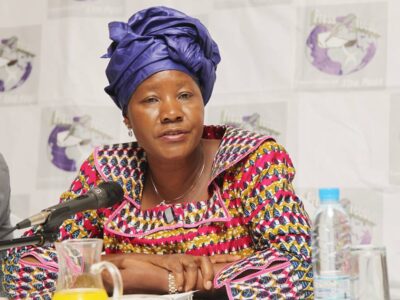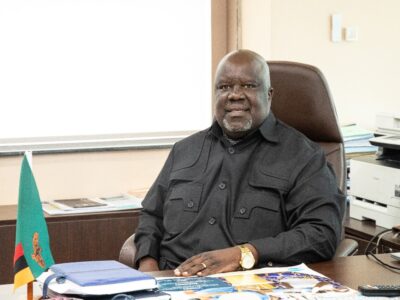Pupils at Kapete Secondary School in Chongwe District have observed that lack of electricity is affecting access to Information Communication Technology (ICT) learning.
And Zambia recorded over 700 cases of online abuses involving children in the country as at December 2021.
Pupils said this during an event to mark Internet Day at Kapete Secondary School in Chongwe organized by ChildFund Zambia on Saturday.
A representative,Peter Daka said government should connect the school to the national electricity grid so that they could learn Information and Communication
Daka pointed out that despite the school having computers, they only connect when they have fuel in the generator, which was expensive.
He also said children were covering a long distance because of lack of dormitory space.
Daka praised stakeholders among them ChildFund Zambia for the donation of books, supporting vulnerable children and providing important information and knowledge in relation to the internet.
At the same event Ministry of Community Development Lusaka Province Child Development Coordinator Fidelis Mboma said government was committed to protecting the welfare of children against vices such as internet abuse.
He said government had in place a National Child Policy, Children Code Act which were helpful in protecting the rights of children in Zambia.
Read more: Online transactions breeding digital fraud, businesses warned to protect their processes
ChildFund (Zambia) has indicated that over 700 cases of online abuse involving children in Zambia were recorded as at December 2021.
ChildFund Zambia Communications officer Priscilla Chama-Mpengula said this should push the country to make the Internet safe for every child.
Mpengula cited child online cases as cyberbullying, harassment and exposure to pornography.
Mpengula was happy to note that the month of February and beyond, would be dedicated to ensuring that stakeholders play a role in putting children and young people at the centre of digital policies.
She said ChildFund Zambia further joined the international and national communities in celebrating the 20th edition of the Safer Internet Day on Tuesday, February 7, 2023.
“This year’s day was commemorated under a timely theme: “want to talk about it? It was a perfect day for young people, care givers, teachers, the media, policy makers and organizations to talk about the benefits and the dangers of the internet on the well-being of children around the world,” she said.
Mpengula stated that according to the International Telecommunications Union (ITU), 94 per cent of young people aged 15-24 in developed countries were online, with more than 65 per cent of young people in developing countries also online.
“Worldwide, half of the total population, regardless of age, is online. The lockdowns of 2020 and 2021 having contributed another one billion children going online to learn and interact.
“The number of internet users in Zambia has also been growing and increased from 25 percent in 2015 to 78 percent in 2018,” she said.
Mpengula observed that while access to the internet stimulated children’s growth, increased access to information, and provided opportunities to learn, there were also a number of sexual offenders spending time online and prying on innocent children.
This is according to a statement by ChildFund made available in Zambia Monitor on Sunday.
WARNING ! All rights reserved. This material, and other digital content on this website, may not be reproduced, published, broadcast, rewritten or redistributed in whole or in part without prior express permission from ZAMBIA MONITOR.












Comments